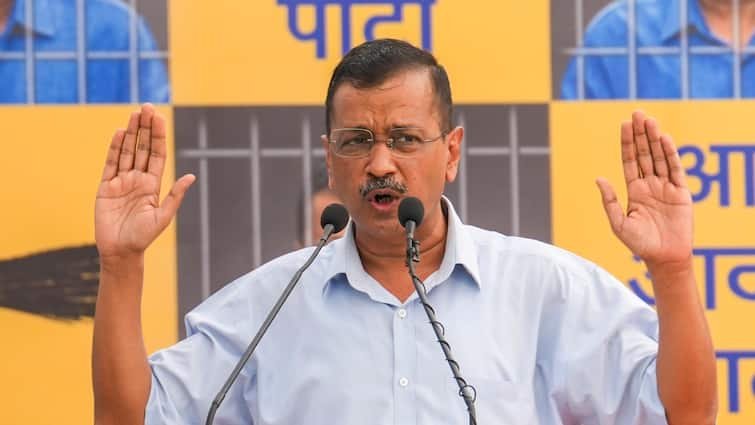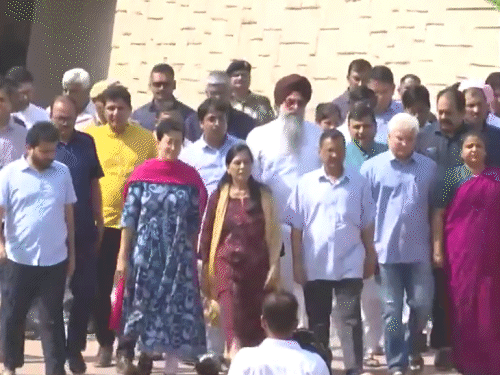SC Grants Interim Bail to Delhi CM Kejriwal in Liquor Policy Case
Supreme Court Grants Interim Bail to Delhi CM Arvind Kejriwal in Liquor Policy Case

Kejriwal granted interim bail; court leaves decision to step down as CM to him.
SC Grants Interim Bail to Delhi CM:In a significant legal development, the Supreme Court has granted interim bail to Delhi Chief Minister Arvind Kejriwal in the case registered under the Prevention of Money Laundering Act (PMLA) related to the controversial liquor policy. The bench, comprising Justices Sanjiv Khanna and Dipankar Datta, referred Kejriwal‘s petition challenging his arrest by the Enforcement Directorate (ED) to a larger bench for a thorough examination.

Key Legal Questions Referred to Larger Bench
The larger bench will examine whether the necessity of arrest should be a mandatory condition under Section 19 of the PMLA. This follows the bench’s observation that “reasons to believe” for an arrest meet the parameters of Section 19, which empowers ED officers to make arrests. However, Justice Khanna emphasized the need to consider the necessity of arrest, especially in light of the doctrine of proportionality.
The court also clarified that mere interrogation does not justify arrest, a point raised during the proceedings. The interim bail granted to Kejriwal will remain in effect, subject to modifications by the larger bench.
Interim Bail and Conditions
The bench decided to grant Kejriwal interim bail considering his prolonged incarceration. Despite the serious nature of the allegations, the court recognized the sacrosanct nature of the right to life and liberty, noting that Kejriwal had been in custody for 90 days. The court left it to Kejriwal to decide whether to step down as Chief Minister, emphasizing that the court was not in a position to issue such a directive.
Background of the Case
Kejriwal was arrested by the ED on March 21, following the Delhi High Court‘s refusal to grant interim protection. His initial plea to the Delhi High Court was dismissed, prompting him to approach the Supreme Court. The Supreme Court issued notice on his plea on April 15, with Senior Advocate AM Singhvi leading the arguments for Kejriwal.
Throughout the proceedings, the ED maintained that there was direct evidence linking Kejriwal to demands for Rs. 100 crores, allegedly used for AAP’s election expenses in Goa. The ED also accused Kejriwal of playing a key role in formulating the excise policy under scrutiny.
Timeline of Events
- March 21: Kejriwal arrested by ED.
- May 10: Supreme Court grants interim release for Lok Sabha elections.
- June 2: Interim release expires, Kejriwal surrenders.
- June 20: Delhi Court grants bail in ED case.
- June 25: Delhi High Court stays bail order, CBI arrests Kejriwal under Prevention of Corruption Act.
- July 17: Delhi High Court to hear Kejriwal’s plea challenging CBI arrest and seeking bail.
Conclusion
The Supreme Court’s decision to grant interim bail to Kejriwal and refer key legal questions to a larger bench marks a pivotal moment in the ongoing liquor policy case. The larger bench’s examination of the necessity of arrest under Section 19 of the PMLA could have significant implications for future enforcement actions by the ED. As the legal battle continues, Kejriwal’s next court appearances will be closely watched by legal experts and political observers alike.
Arvind Kejriwal v. Directorate of Enforcement, SLP(Crl) 5154/2024







